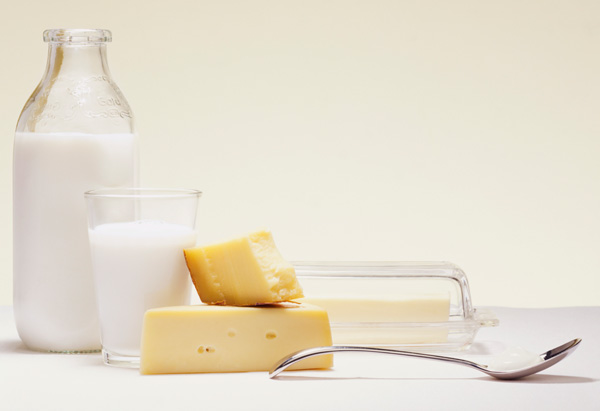Could You Give Up Fat-Free and Low-Cal Foods in Favor of the "Real" Thing?

Photo: Thinkstock
To keep her weight down, Jancee Dunn lived on a round-the-clock snackfest of chiplike things, frozen "treats," and other foods not found in nature. What would happen, we wondered, if instead of mountains of fake food, she tried reasonable amounts of the real thing? Steak. Cheese. Full-fat ice cream. Would she get ravenous? Tired? Fat? A month after accepting our challenge, Dunn weighs in.
Here's what I eat on an average day: an energy bar, cheddar-flavored rice cakes, a banana, some baked chips, and for dinner, maybe a slice of pizza washed down with diet lemonade. Then if I'm feeling wild, I'll have a slice of fat-free pound cake. This menu horrifies my husband, an amateur gourmet cook. "Why do you eat that fake stuff?" he asks. I give him my usual answers: I don't have time for real meals. I like feeling "light" as opposed to stuffed. It keeps my energy up. But the real reason is that I am always thinking about food. I remind him that I've had a robust appetite since birth—my first word was more—and I can't exactly eat brownies nonstop. He shakes his head. We've had this conversation many times. He grabs my latest discovery, a box of jalapeño "munchies," a low-fat version of pizza rolls from the health food store, and says, "Can you please define a munchie?"
I can't. All I know is that if I'm going to eat all day, then grazing on low-fat or low-carb snacks and meals is the only way I know to maintain my weight. But later, after polishing off a bag of cheddar and sour cream baked chips (not a two-ounce portion but a family-size bag), I think about my husband's questions and start wondering about the trade-off for feeling so light. Those chips were the color of a highway safety cone, and why was sugar the third item on the list of ingredients? What if I ate the real-food counterparts to all my low-cal foods—actual ice cream, for instance? Would my thighs expand faster than the Sun Belt suburbs? Would I feel sluggish from the changes? And if I started eating cheese or cookies or roast beef, would I ever be able to stop?
I wasn't sure. My diet plan has always been about leveraging science and technology to fool my taste buds and Mother Nature, but when O asked me to give up my faux foods in favor of the real thing for a month, I thought it might be time to try something different. So I said yes.
Week 1
Knowing that this will be a radical shift in my diet, I've arranged to talk to a woman who's written a best-selling book about enjoying fabulous food in tiny amounts, as well as two nutrition experts, and Danny Meyer, the incredibly busy owner of some of New York's consistently top-rated restaurants, who always tries to make time for a homemade lunch. The first of my unofficial advisers is Mireille Guiliano, president of the Champagne company Clicquot and author of French Women Don't Get Fat. The French, Guiliano explains in her book, refuse to think of a meal as a guilt-inducing activity. French women make a ritual of sitting down for a meal—they do not snack or eat on the run. They also don't torture themselves; they take pleasure in wine and cheese and pastries—all kinds of foods that I've deprived myself of—but in moderation.
We meet at Jean Georges restaurant, a glorious, four-star paean to French cuisine in New York City. As a waiter serves Guiliano a jewel-like piece of salmon and a few perfect spears of asparagus, I tell her about my low-cal lifestyle. Like all the experts I'll meet, she's aghast. During our three-hour meal, she drinks a generous glass of Champagne and eats both bread and molten chocolate cake, but, following a key tenet of her book, only three bites of each. "The first bites are the best, anyway," she says. I try her rule, then put my fork down when she does. She's right: If you can just hold off that more-more-more urge for five minutes, you won't bolt down the whole serving. We share our dishes with much exclaiming (dining with her is a festive event), and Guiliano tells me about her passion for cooking with fresh, seasonal ingredients.
For dinner that night, in the spirit of Guiliano, I leave the frozen diet angel hair pasta marinara in my freezer and make my own, using vine-ripe tomatoes and fragrant basil. I imitate Guiliano and eat slowly, putting my fork down frequently. I still devour the whole thing. French women may not get fat, but I'm afraid I might.



